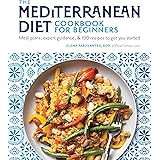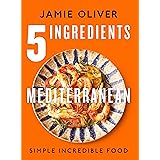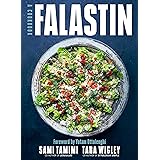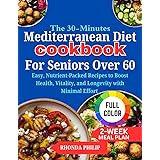Navigating the world of healthy eating can often feel overwhelming, especially when it comes to the most important meal of the day: breakfast. You might frequently wonder what constitutes a truly nutritious start, or perhaps you seek inspiration for delicious yet wholesome morning meals. In the video above, you caught a glimpse of a dietitian sharing a peek into her breakfast routine. While the video offers a quick snippet, we want to dive deeper into the principles and practicalities behind a dietitian’s approach to the morning meal, expanding on what makes for an excellent foundation for your day.
Understanding the dietary choices of a nutrition expert, such as a registered dietitian, can provide invaluable insights for your own eating habits. These professionals apply scientific knowledge to real-world food choices, making their personal meals a fantastic source of inspiration. This article aims to unpack the core components and philosophies that often guide dietitians in crafting their morning meals, giving you actionable steps. We will explore the critical reasons why breakfast matters, alongside specific nutrient combinations that promote sustained energy and overall well-being.
Why Your Healthy Breakfast is Non-Negotiable
Firstly, starting your day with a nourishing breakfast sets a positive tone for your metabolism and energy levels. It breaks your overnight fast, providing your body with essential fuel after several hours without food. Many studies indicate that regular breakfast consumption correlates with improved cognitive function throughout the morning hours. For instance, research published in the journal ‘Appetite’ often highlights how a consistent breakfast routine can enhance concentration and memory retention for adults and children alike. This foundational meal truly powers both your physical and mental activities.
Secondly, a well-balanced breakfast can significantly influence your food choices later in the day, helping to prevent excessive snacking and overeating. Individuals who consistently consume a nutritious breakfast tend to make healthier choices at lunch and dinner. A major study involving thousands of participants demonstrated that breakfast eaters are more likely to meet their daily nutrient requirements, including essential vitamins and minerals. Furthermore, a balanced morning meal has been linked to better weight management outcomes and a reduced risk of developing chronic diseases, such as type 2 diabetes. Prioritizing your dietitian breakfast is a smart investment in your long-term health.
The Dietitian’s Philosophy for a Balanced Morning Meal
A dietitian’s approach to breakfast is typically rooted in balance, nutrient density, and mindful eating. They understand that no single food is a magic bullet, but rather, the combination of different food groups creates synergistic benefits. This philosophy emphasizes whole, unprocessed foods that provide sustained energy without drastic blood sugar spikes. They aim to include a mix of macronutrients—protein, carbohydrates, and healthy fats—in appropriate proportions. For example, a typical dietitian breakfast might focus on complex carbohydrates for steady energy, protein for satiety, and healthy fats for nutrient absorption. This holistic view considers both immediate and long-term health benefits.
Moreover, dietitians often prioritize listening to their body’s hunger and fullness cues, promoting intuitive eating even at breakfast. They might adjust their portions based on their activity levels or how they feel that particular morning. The goal is to feel satisfied and energized, not overly stuffed or still hungry shortly after eating. This mindful approach moves beyond rigid meal plans, instead fostering a flexible and sustainable relationship with food. Embracing these core principles helps in creating a healthy breakfast routine that genuinely supports individual wellness goals.
Key Components of a Power-Packed Dietitian Breakfast
Crafting a truly effective healthy breakfast involves incorporating specific components that work together to fuel your day efficiently. These elements ensure you receive a broad spectrum of nutrients, providing both immediate and lasting benefits. Understanding these building blocks allows you to customize your dietitian breakfast to suit your personal preferences and dietary needs. By focusing on these categories, you can build breakfasts that are both delicious and incredibly beneficial for your health journey.
1. Protein Power for Sustained Energy
Protein is a cornerstone of any dietitian-approved breakfast, crucial for satiety and muscle maintenance. Consuming adequate protein in the morning helps to slow down digestion, keeping you feeling full and satisfied for longer periods. A study published in the ‘American Journal of Clinical Nutrition’ found that high-protein breakfasts significantly increase satiety and reduce subsequent calorie intake throughout the day. This reduces the likelihood of experiencing energy crashes or reaching for unhealthy snacks before lunchtime. Aim for sources like eggs, Greek yogurt, cottage cheese, lean meats, or plant-based proteins such as tofu, nuts, and seeds.
2. Fiber-Rich Carbohydrates for Digestive Health
Complex carbohydrates, particularly those rich in fiber, are essential for sustained energy release and digestive health. Unlike simple sugars, which can lead to rapid energy spikes and subsequent crashes, fiber-rich carbs provide a steady stream of glucose to your brain and muscles. Fiber also plays a vital role in regulating blood sugar levels and promoting a healthy gut microbiome. Excellent sources include whole-grain oats, whole-wheat bread, fruits, vegetables, and legumes. Incorporating these into your morning meal ensures lasting energy and contributes significantly to your daily fiber intake.
3. Healthy Fats for Optimal Function
Healthy fats are another critical component, supporting brain function, hormone production, and the absorption of fat-soluble vitamins. While often misunderstood, fats are an indispensable part of a balanced diet, especially at breakfast. They contribute to satiety and provide a concentrated source of energy, complementing the effects of protein and carbohydrates. Research consistently shows that incorporating healthy fats, like those found in avocados, nuts, seeds, and olive oil, can improve heart health markers. These beneficial fats are key to a well-rounded and satisfying dietitian breakfast.
4. Vitamins and Minerals from Fruits and Vegetables
Finally, don’t forget the power of micronutrients, delivered abundantly through fruits and vegetables. These foods provide essential vitamins, minerals, and antioxidants that protect your cells from damage and support overall immune function. Adding a serving or two of produce to your breakfast is an excellent way to boost your daily nutrient intake. Berries, spinach, bananas, and apples are versatile options that can easily be incorporated into smoothies, oatmeal, or alongside eggs. Regularly consuming these nutrient-dense foods contributes significantly to long-term health and vitality.
Simple and Satisfying Dietitian-Approved Breakfast Ideas
Putting these components together into delicious and practical meals doesn’t have to be complicated. Here are several healthy breakfast ideas that dietitians often recommend for their simplicity and nutritional completeness. These suggestions are designed to be flexible, allowing you to adapt them to your preferences and what you have available. Remember that variety is also key to ensuring a broad intake of different nutrients.
- **Overnight Oats with Berries and Nuts:** Combine rolled oats with milk (dairy or non-dairy), chia seeds for extra fiber and omega-3s, and a scoop of protein powder or Greek yogurt. Let it sit overnight, then top with fresh berries for antioxidants and a handful of almonds or walnuts for healthy fats and crunch.
- **Scrambled Eggs with Whole-Grain Toast and Avocado:** Two or three eggs provide excellent protein, while a slice of whole-grain toast offers complex carbohydrates and fiber. Add a quarter of an avocado for healthy monounsaturated fats and a creamy texture. This combination keeps you full and focused.
- **Greek Yogurt Parfait with Fruit and Granola:** Layer plain Greek yogurt (high in protein) with your favorite mixed berries or sliced fruit and a sprinkle of low-sugar, whole-grain granola. This is a quick, refreshing, and nutrient-dense option. You can also add a drizzle of honey.
- **Smoothie with Spinach, Banana, and Protein:** Blend spinach (you won’t taste it!), half a banana, milk, a scoop of protein powder, and a tablespoon of almond butter. This offers a quick way to pack in greens, fruit, protein, and healthy fats. Smoothies are incredibly versatile.
- **Cottage Cheese with Sliced Tomatoes and Everything Bagel Seasoning:** For a savory twist, cottage cheese provides a significant protein punch. Pair it with fresh sliced tomatoes, which offer vitamins and a refreshing taste. A sprinkle of everything bagel seasoning adds flavor without excessive calories.
Beyond the Plate: Holistic Breakfast Habits for Wellness
Creating a truly effective healthy breakfast routine extends beyond just what you eat; it also encompasses how you eat and other morning habits. Dietitians often emphasize a holistic approach to wellness, recognizing that lifestyle factors significantly impact the benefits you derive from your food. Incorporating these additional practices can enhance your digestion, improve nutrient absorption, and contribute to a more positive start to your day. These elements are just as important as the food itself in building a sustainable and healthy morning ritual.
Firstly, hydration is paramount, so consider starting your day with a glass of water before your breakfast. Many people wake up mildly dehydrated, and replenishing fluids supports metabolic functions and energy levels. Secondly, practice mindful eating, taking the time to savor your meal without distractions like screens or work emails. Research shows that mindful eating can improve digestion and increase satisfaction from your food. This intentional approach helps you better recognize hunger and fullness cues, preventing overeating.
Thirdly, incorporating some light physical activity, such as a short walk or stretching, before or after your breakfast can further boost your metabolism. Even a few minutes of movement can enhance energy and mood, complementing your nutritious meal. Lastly, preparing some breakfast components the night before, like chopping fruit or assembling overnight oats, can reduce morning stress and ensure you stick to your healthy habits. This proactive meal prep strategy makes it much easier to enjoy a balanced dietitian breakfast, even on your busiest mornings.











